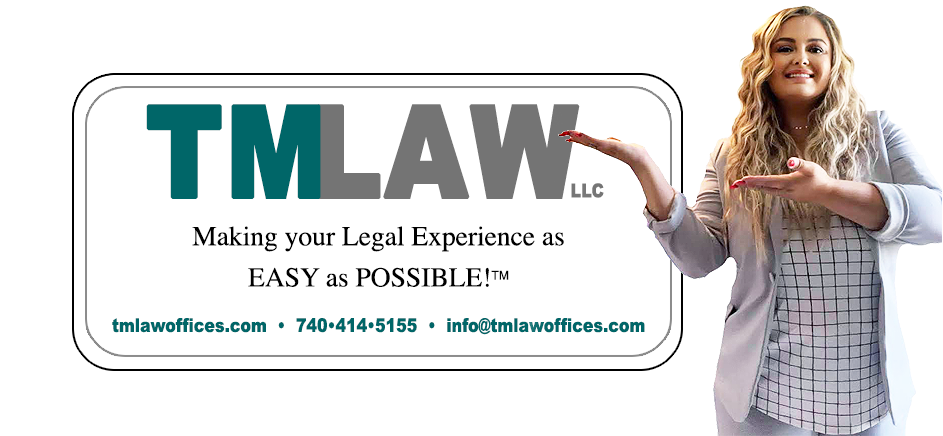Knowledgebase - Articles Written by Teshia
I like to write Articles every now and then in order to provide helpful information.
Below are some Articles which are worth the read.
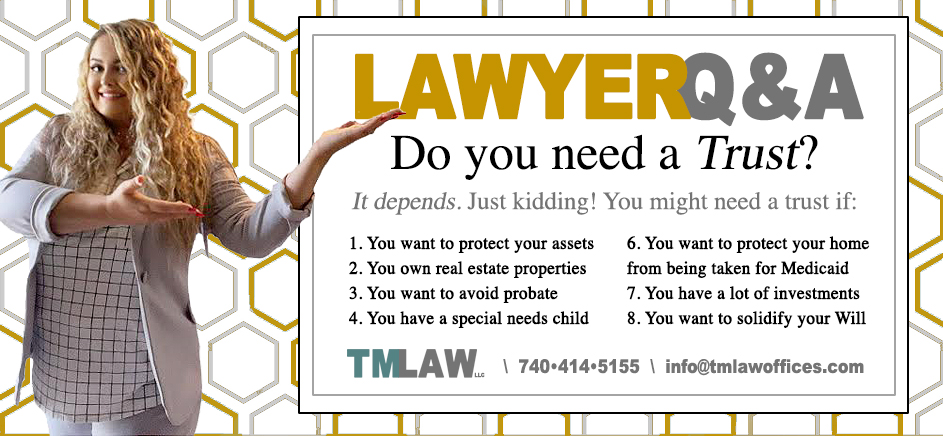
Today's Topic: Do you need a trust?
The answer: Maybe!
It is an interesting topic even among lawyers, but the consensus is that you may need a Trust if any of the following main topics apply to you:
1. You want to protect your assets.
What this means in a nutshell is that if you put all of your "stuff" into a Trust, it can be protected from other people or entities getting to it, like creditors. It doesn't matter if you have a little or a lot of assets, having them protected by a Trust is a critical play if you want to be sure everything is protected from everyone and everything else.
2. You own real estate properties.
If you are an investor and/or you own more than one piece of real estate, you definitely want a Trust. This is going to be sure that all of your property is tied into one place and managed by one person when you're no longer here to manage it. I will get into this more on number 3, but having all of your property deeded into one living trust is a sure-fire way to save your family a lot of time and money on probate avoidance in the future.
3. You want to avoid probate.
Probate court is where all of your "stuff" goes when you are no longer here. Even with a Living Will and Testament, that still goes to a probate judge to divvy out your estate according to your Will. It can take several months to a year to complete this process, and even longer if you have assets or property in other states, because you will have to finish that state's probate process first. It can also be costly! Having a trust eliminates the probate process because you appoint a Trustee to manage the assets of your Trust for you! This is usually a spouse or family member. No judges or lawyers or extra cost!
4. You have a special needs child.
We call this a Supplemental Trust, and it is vital to give these individuals financial support from Trust funds, without disqualifying them from special government programs or benefits. This kind of Trust can also protect them from creditors reaching their assets.
5. You want to protect your home from being taken for Medicaid.
You may have heard of the '5-year clock', or the 'spend-down" and are aware of horror stories about elderly members going into nursing homes and their house is sold to pay for Medicaid expenses. Yes, it happens. Asset Protection Trusts (referred to by many different names) are vital for protecting your home and other assets.
6. You have a lot of investments.
Not just real estate or property, but stocks, bonds, IRA accounts, insurance policies, maybe you have valuables like gold or baseball cards or a lot of jewelry. A Trust would come in handy here to help control these assets and protect them from being sold if they enter probate court!
7. You want to solidify your Will.
I referenced this in question 3, but your Will still goes to probate court! A Trust works in conjunction with your Will and what's called a Pour-Over Will, which makes sure that anything you own goes into your Trust at the time of your passing. Plus, you keep your family out of the probate court.
Have Trust questions? Need a Trust? Message me today!!!
Teshia Martin, info@tmlawoffices.com, 740-414-5155
|
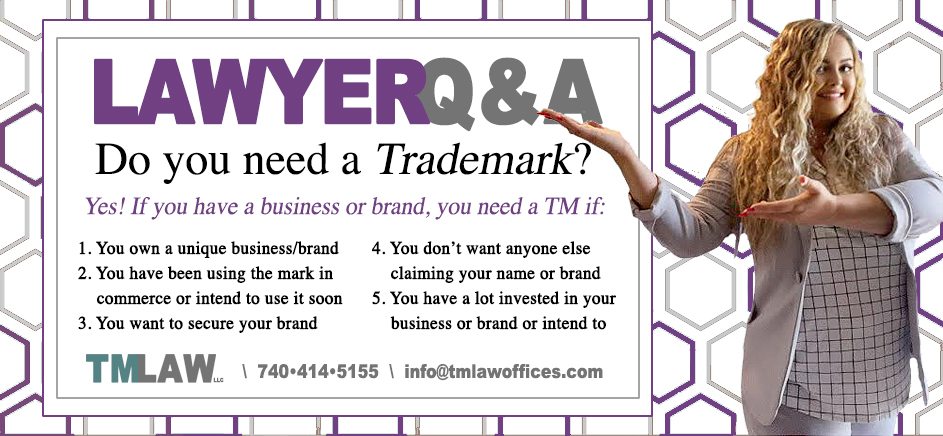
Today's Topic: Do you need a Trademark?
So this might not pertain to a lot of you, but, if you know someone who owns a business or sells a unique brand or item, please tag them or share this with them because of how important it is!
I will start answering this question with a question: What happens if you DON'T Trademark your brand?
I am going to share a little story that will help answer this question, and all of my 5 points below.
Before I was a lawyer, I was a graphic designer for 20 years. I designed websites and helped businesses market their brand with design and brand identity.
I had a client who spent several years and a lot of money building a HUGE brand selling women-based products. She had the CUTEST items for sale, and had an adorable business name. Her and I spent hours together over two years designing her logo, website, putting all of that branding on merchandise...you get the picture. She grew to the point of having a 20,000 square foot building with merchandise.
Long story short, she calls me one day crying SO hard I could barely understand her. "I got taken to court and I lost my business name...Teshia, I lost everything. I have to start OVER."
Unfortunately, another business had already been using a business name similar to hers. It wasn't even exact! JUST SIMILAR! But it was similar enough, selling comparable items, and they had TRADEMARKED themselves with the federal TM office. My client was devastated.
She did eventually start over, but BOY, it was so hard watching her go through that process.
So, what does Trademark registration do? Well, it files your business and/or brand with the United States Patent and Trademark Office (USPTO) and makes it so that if anyone starts a business or brand even remotely similar to yours, or is selling items even remotely similar to yours, you own the COMPLETE RIGHTS and can essentially put that other brand or business out.
It sounds terrible when you say it that way, and I'm sure you feel awful for my former client, but can you imagine being the OTHER guy? You've spent YEARS and THOUSANDS of dollars building a brand with tons of merch, and a competitor comes along with something similar and is riding on your co-tails? NO THANK YOU!
That's why we Trademark. That's why you PROTECT your BRAND. And you do it NOW before it's too late!
If you have any questions, or know anyone who needs a TM registration, or if YOU need one, please call, email, or message me today! Comment and I will reply!
Thanks for reading. Please SHARE!
TM Law LLC, Teshia Martin, Attorney
740-414-5155 | info@tmlawoffices.com
|
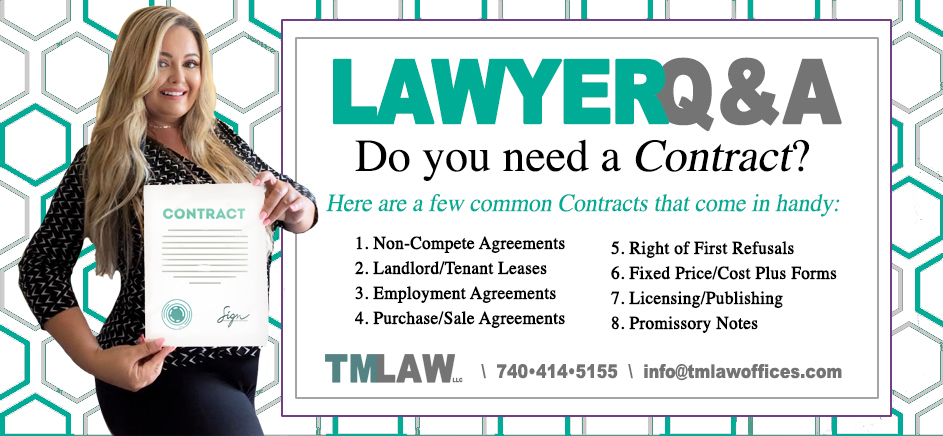
Today's Lawyer Q&A Covers the very broad topic of:
CONTRACTS - do you need one?
There are hundreds, maybe thousands of different types of Contracts. But, here is a list of 8 common Contracts that you or someone you know may need, what they are, and why you need them.
First, disclaimer: I have had SO MANY clients find free or even paid for legal contracts online that just DO NOT WORK. Please do not fall for that. Different states have different laws for a reason, and I have read many contracts that are not enforceable because they were downloaded from the internet and modified, but were not attorney approved for their state.
So, if you need a contract of ANY kind, please contact me or another attorney to help you with the process! It could save you serious headaches and legal fees later.
Let's look at some of the common Contract types below:
1. Non-Compete Agreements
These are common with employment relationships or business sales. Non-Compete Agreements protect the business entity from having their trade/s stolen or taken to start another business. Further, if you sell a business, you may be asked to sign this type of agreement saying you won't go start another business of the like within a certain time period (usually 2-5 years for both types).
2. Landlord/Tenant Leases
These are self-explanatory. There are MANY free versions of these available online, and I have read hundreds of them. But what a lot of landlord and tenants do NOT know is that several KEY things can be missing from these that allow for very costly litigation later. I have a lot of experience with these, so please contact me if you want one reviewed or need one created.
3. Employment Agreements
Ohio is an At-Will employer, meaning that you can be terminated from any job for any legal reason without the employer incurring liability. That's a great reason to have an Employment Agreement in tact. Here, both parties can specify terms such as salary, benefits, vacation times, etc., but also the terms and conditions of the responsibilities of both parties and contract length. These could help secure positions for both parties.
4. Purchase/Sale Agreements
These can be rendered for ANY type of business, but a lot of what I have been seeing lately, and a great example of this, would be a Purchase Agreement from a puppy breeder to not only secure the sale of the puppy, but to lay out terms that the buyer must abide by in order to keep the puppy and guarantee it's health and warranty. You can use that example and apply this to anything being sold that has a lot of value.
5. Right of First Refusals
This one is referring to real estate, not parenting agreements. Called an ROFR, this is an agreement between a property owner and the person receiving the right to purchase. If the owner wants to sell or transfer the property or property rights in the future (such as mineral rights), the ROFR allows the holder to have the "first chance" to make the purchase. These come in handy when you want to keep a home or a farm in family succession.
6. Fixed Price/Cost Plus Forms
Fixed Price Contracts are like my Attorney/Client Retainer Agreements. I do not charge hourly, I charge a fixed price. So you know that no matter what work I do for you, you are paying a fixed cost (unless the agreement lays out the scope of the agreement and we go beyond the scope - you get the picture).
Cost Plus Contracts - think of a construction business - are an agreement that says the service-provider, or contractor, will perform the service and charge the "buyer" for products and materials as construction commences, and after the work is completed, there will be an affixed fee for the completed work.
7. Licensing/Publishing Contracts
Think of book deals, where one party gives the other party a right to sell a licensed product for a royalty. Think artists. I have been reviewing a LOT of book publishing contracts lately. If you have a contract like this in the works, need one, will be signing one soon, just signed one, etc. and need some help, I would love to review it for you and make sure you're getting a good deal!
8. Promissory Notes
Lamens terms here- when you borrow money from someone to pay for something. Think car loans, etc. But, these can also be family, friend, personal loans. If you're lending money to someone, or you're the borrower, DO NOT DO IT WITHOUT SOMETHING IN WRITING! You can get liens against your property, lose title to your assets, have bank accounts frozen etc. Even with family and friends...trust me, I have seen horror stories. I just saw one today. Get a promissory note and protect yourself!
QUESTIONS? COMMENTS? Leave a message below or inbox me.
Teshia Martin - 740-414-5155 | info@tmlawoffices.com
|
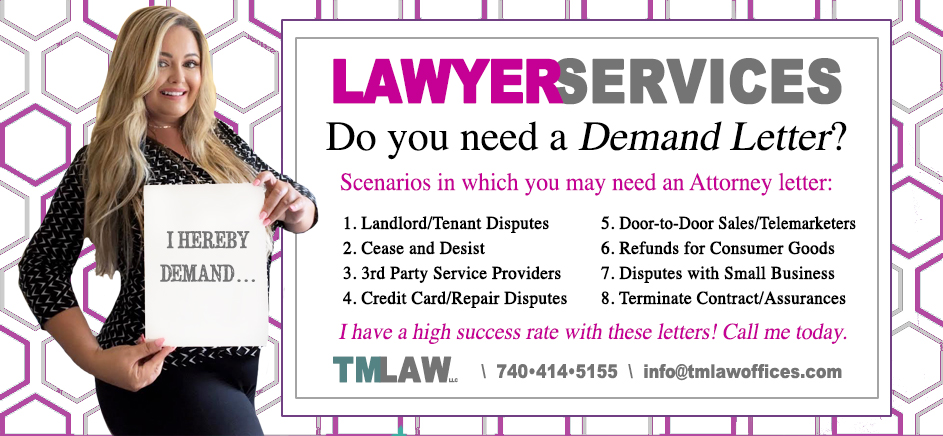
LAWYER SERVICES: Do you need a Demand Letter?
A lot of disputes and issues can get resolved very easily by having an attorney draft a demand letter for you. Many people call these letters "scare tactics," although I hate that terminology.
I have written many Attorney demand letters now for clients, and they have about a 90% success rate. Why? Because it is scary getting a letter from an attorney, and it lets the party know that you're serious.
Let's talk about some scenarios that warrant a demand letter:
1. Landlord/Tenant Disputes
This is where I have written the most letters, and seen the most success. You would be shocked at the amount of landlords I have seen in Ohio that violate Ohio Revised Code when it comes to landlord/tenant laws. If you are having an issue with a landlord or tenant and need some help, such as mold, repairs not getting made, trying to evict without cause, uninhabitable conditions such as no hot water or heat, etc., contact me.
2. Cease and Desist
These letters are written a lot for copyright and trademark protection. For example, I just wrote one to a small business owner who was selling t-shirts with someone else's logo on it. If you're a business and someone is stealing your goods or services, a cease and desist to STOP using your content is sometimes all it takes.
3. 3rd Party Service Providers
If you have contracts with 3rd parties such as pest control service providers, lawn care, security systems, solar panels, etc., and want out of a contract or agreement, or the providers are not performing according to the terms, an Attorney demand letter may be just what you need to get out of the deal early.
4. Credit Card Disputes and Credit Repair Disputes
I have written several letters to credit card companies on behalf of Ohio consumers to get them out of debts in which they feel are fraudulent or which they are not responsible.
Further, do you check your credit report? You should! You can download a free credit report once annually at creditkarma.com. If you see anything on your credit report that is disputable, contact me and let me help you dispute it.
5. Door-to-Door Sales and Telemarketers
Did you know, Ohio has strict laws about cancellation of contracts for these types of services? If you signed one of these agreements and felt pressured or coerced by a salesman, get ahold me of me ASAP. As long as it's within a certain amount of days, we can cancel the agreement.
6. Refunds for Consumer Goods
If you've bought anything and feel you deserve a refund and the other party is refusing, I may be ale to help you with a letter. Examples: I recently wrote a letter for a client to an online distributor of pharmaceuticals that were a waste of money. They refused to refund my client. But guess what did work? The letter  My client had a refund in his account within 3 business days. My client had a refund in his account within 3 business days.
7. Disputes With Small Business
Listen, I support small business, especially being from a small town in Ohio, and I have business clients! But, I have seen a lot of unfair practices when it comes to consumers. A lot of small businesses do not want to give refunds for goods or services even though they know their product wasn't great, the buyer is unhappy, or their service was not up to par. You end up with an angry customer, and then a bad review. If you are that consumer, a letter to the small business from an Attorney explaining your situation is often times all it takes to make things right.
8. Terminate Contract & Demand for Assurances
This is two-part. Termination of contracts, like ones mentioned previously or, for example, a book publishing deal, can all be terminated even beyond a buyout clause with an Attorney letter. Of course, this is not guaranteed, but it is extremely persuasive.
A Demand for Assurances works like this: You have a contract with a service provider, such as a contractor, and they are not performing or living up to the terms of the agreement. You can legally write a demand for assurances from them that says they must provide proof that they are or will still perform as per the contract agreement. These letters are usually all it takes to get a contractor or service provider back to work!
Questions? Need a Demand Letter? I have competitive pricing!
Message me or call 740-414-5155 or email info@tmlawoffices.com
|
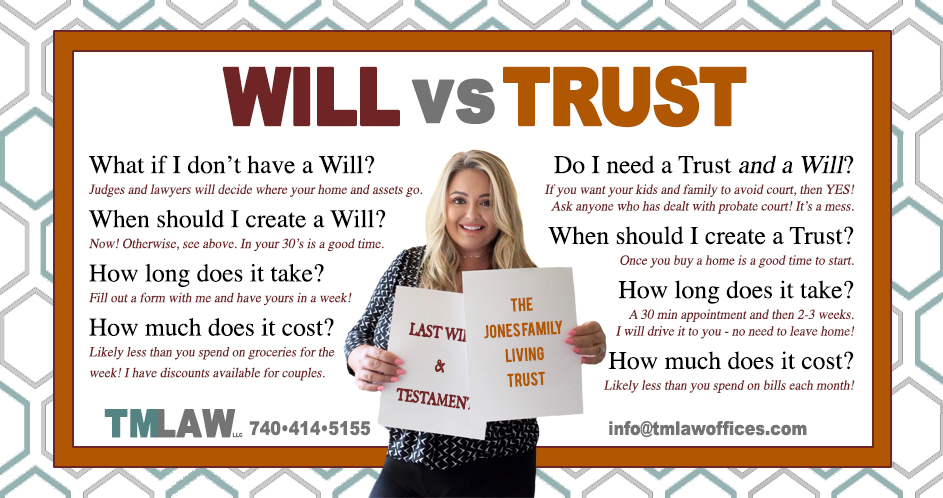
|










